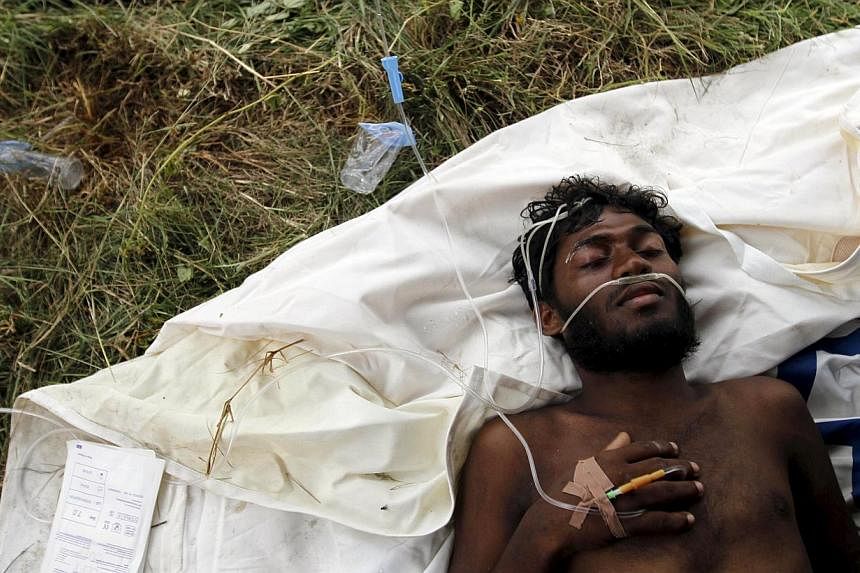GENEVA (AFP, Reuters) - The UN rights chief said Friday he was "appalled" that three South-east Asian countries were pushing back starving migrants, of whom some 6,000 were stranded at sea.
Zeid Ra'ad Al Husein urged Thailand, Malaysia and Indonesia not to worsen the human-trafficking crisis involving Bangladeshis and ethic Rohingya from Myanmar.
The UN says more than 25,000 people have made the journey south from the Bay of Bengal between January and March this year. Over the past week, nearly 2,500 have drifted onto the shores of Malaysia and Indonesia in flimsy vessels after Thailand launched a crackdown on people-smugglers.
Zeid praised Indonesia for letting 582 migrants land last Sunday and Malaysia for allowing 1,018 to disembark the following day but said other stricken boats had been turned away since.
"I am appalled at reports that Thailand, Indonesia and Malaysia have been pushing boats full of vulnerable migrants back out to sea, which will inevitably lead to many avoidable deaths," he said.
Zeid said the latest report of the Thai navy forcing a boat carrying several hundred people back out to sea after supplying it with provisions was "incomprehensible and inhumane".
"The focus should be on saving lives, not endangering them."
His appeal came as more than 750 Rohingya and Bangladeshi migrants were rescued off Indonesia.
Passengers on one vessel carrying 712 people said their boat sank off Sumatra after being driven away by Malaysia.
Zeid also expressed alarm that some countries were reportedly threatening to criminalise illegal migrants and asylum seekers.
He said their rights must be upheld "regardless of their legal status, how they arrive at borders, or where they come from."
Zeid also called for stronger action against traffickers after reports of horrific torture, abuse, ransom and people being thrown into the sea.
The International Organization of Migration meanwhile warned that an estimated 6,000 migrants remained stranded at sea.
It said it had released US$1 million (S$1.32 million) to help migrants left in the lurch.
"We cannot stand by and watch as men, women and children die agonisingly of thirst, mere kilometres away from safety," IOM's head William Lacy Swing said.
Swing also appealed to the governments of the three countries to let the migrants land and access medical treatment.
"We will assist you in resolving the longer-term problems of accommodation, transport home for some, and other options, but in the name of humanity, let these migrants land," he said.
The Bangladeshis are thought mainly to be economic migrants escaping their country's grinding poverty.
But the Muslim Rohingya flee by the thousands each year to escape state-sanctioned discrimination in Buddhist-majority Myanmar and recent sectarian violence against them.
There are more than a million Rohingya living in Myanmar's western state of Rakhine, many going back generations, but Myanmar insists they are illegal immigrants from Bangladesh.
The flow of desperate migrants across the Bay of Bengal will continue unless Myanmar ends discrimination against the Rohingyas, Zeid said.
"Until the Myanmar government addresses the institutional discrimination against the Rohingya population, including equal access to citizenship, this precarious migration will continue," he said in a statement.
Zeid said the situation in Rakhine was "one of the principal motivators of these desperate maritime movements".

